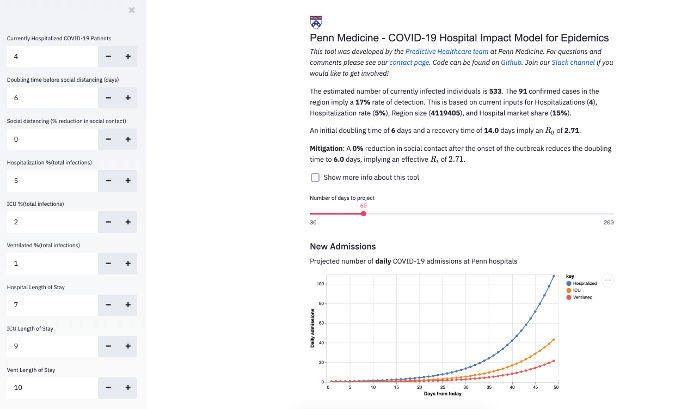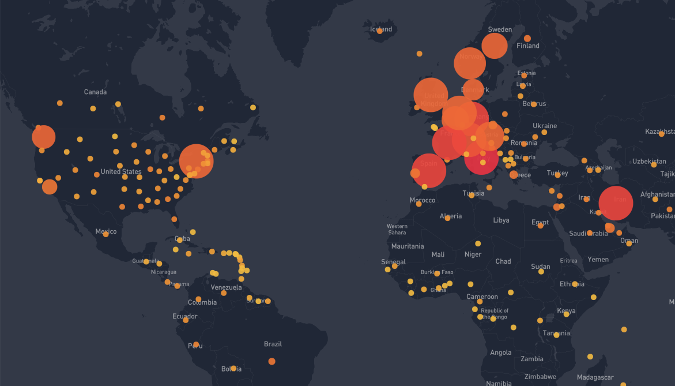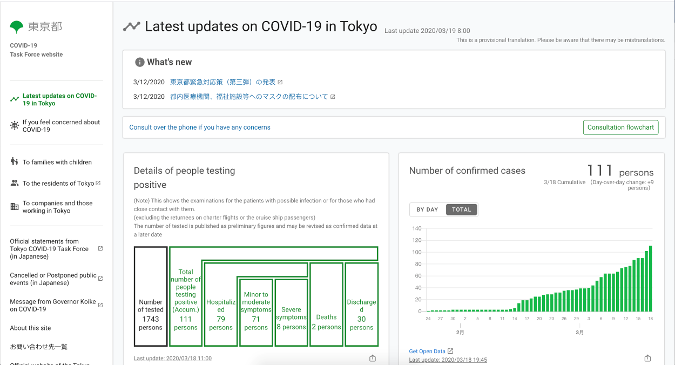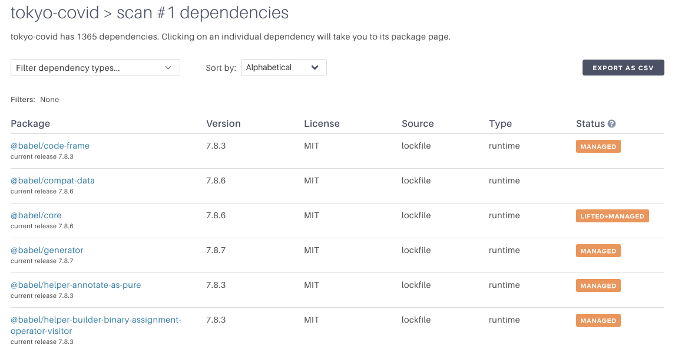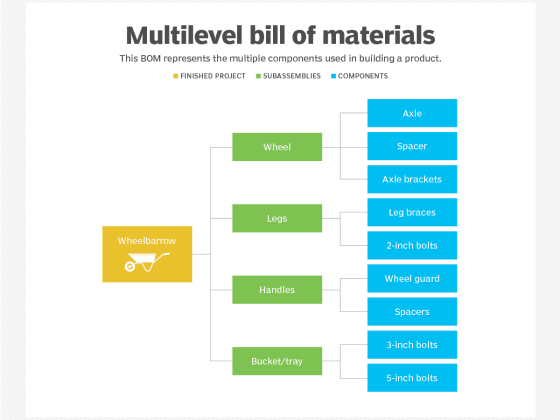Learn about four of the thousands of open source projects combating the spread of coronavirus.
Work is hard right now. COVID-19 makes it a challenge to stay focused and motivated. But it was cathartic for me to do some research into how the open source community is responding to the global pandemic.
From our partners:
Since the end of January, the community has contributed to thousands of open source repositories that mention coronavirus or COVID-19. These repositories consist of datasets, models, visualizations, web and mobile applications, and more, and the majority are written in JavaScript and Python.
Previously, we shared information about several open hardware makers helping to stop the spread and suffering caused by the coronavirus. Here, we’re sharing four (of many) examples of how the open source software community is responding to coronavirus and COVID-19, with the goal of celebrating the creators and the overall impact the open source community is making on the world right now.
1. CHIME by PennSignals
COVID-19 Hospital Impact Model for Epidemics (CHIME) is an open source application built by data scientists at Penn Medicine at the University of Pennsylvania. The online tool allows hospitals to better understand the impact the virus will have on hospital demand.
Hospital leaders can use CHIME to “get more informed estimates of how many patients will need hospitalization, ICU beds, and mechanical ventilation over the coming days and weeks.” A user can input how many patients are currently hospitalized and see, based on other variables, how demand might increase over the coming days.
CHIME is primarily built with Python and uses the pandas open source dependency for much of the underlying data-transformation number-crunching to generate the estimates. Pandas has a relatively robust team and is one of the most commonly used Python libraries for data analysis and, like all open source projects, is highly dependent on users’ support for income.
2. Real-time COVID-19 visualization by Locale.ai
Maps that track the number of cases help us visualize the relative scale and spread of COVID-19. Locale.ai created an open source, interactive visualization of all known cases of COVID-19. The map provides live updates with new data as it becomes available.
I find this project especially interesting because the data is retrieved via an open source API created by GitHub user ExpDev07 that queries an open source dataset from John Hopkins University. The John Hopkins dataset (an aggregate of more than a dozen other sources) is currently the most popular COVID19-related project on GitHub. This is the branching nature of open source at its finest!
Locale.ai built the visualization website using Vue.js, a popular framework that allows web developers to create modern web apps. Vue.js was created and continues to be maintained by Evan You, one of the few people who have made a full-time career as an open source maintainer.
3. DXY-COVID-19-Crawler by BlankerL
DXY-COVID-19-Crawler was created in January and is one of the earliest responses from the open source community to COVID-19. When the virus was spreading primarily in China, the Chinese medical community was using a site called DXY.cn to report and track cases. To make the information more readily available and usable by others, GitHub user BlankerL wrote a web crawler to systematically collect data from the DXY.cn site and make it available via an API and data warehouse. That data has been used by academic researchers and others to examine trends and visualize the spread of the virus. So far, DXY-COVID-19-Crawler has been starred more than 1,300 times and forked nearly 300 times.
BlankerL wrote the web crawler using Python and a package called Beautiful Soup. Beautiful Soup is an application that allows Python developers to easily scrape information from websites. Beautiful Soup is maintained by Leonard Richardson, who also works full-time as a software architect.
4. City of Tokyo’s COVID-19 task force website
Many cities around the world have updated their websites with information for their residents about COVID-19. The Tokyo Metropolitan Government created a comprehensive website that “aims to allow Tokyo residents, companies with offices in Tokyo, and visitors to Tokyo to grasp the current situation and take measures and precautions accordingly.”
Unlike many other cities, Tokyo decided to open source its site. The project boasts contributions by more than 180 different users, and at least three other cities in Japan (Nagano, Chiba, and Fukuoka City) remixed the site. The project is an example of how cities can better serve their citizens by building openly.
There’s an incredible amount of open source technology powering Tokyo’s open source website. Using the Tidelift application, I identified 1,365 dependencies used in the project. All of this complexity happens because 38 direct dependencies (i.e., dependencies the developers explicitly decided to use) have dependencies of their own. That said, maintainers of more than a thousand different open source dependencies (including Nuxt.js, Prettier, Babel, Ajv, and more) are in a small way responsible for helping Tokyo share information with their citizens.
Other projects
There are many other important projects being built in the open in response to COVID-19. I am inspired by how the open source community is responding to this pandemic and leveraging other open source technologies to work quickly. The weeks ahead will be difficult, but I know we can continue to find motivation in the open source community.
If you are working on an open source project related to COVID-19, please share it so we can help spread the word.
Republished from opensource.com
For enquiries, product placements, sponsorships, and collaborations, connect with us at [email protected]. We'd love to hear from you!
Our humans need coffee too! Your support is highly appreciated, thank you!

